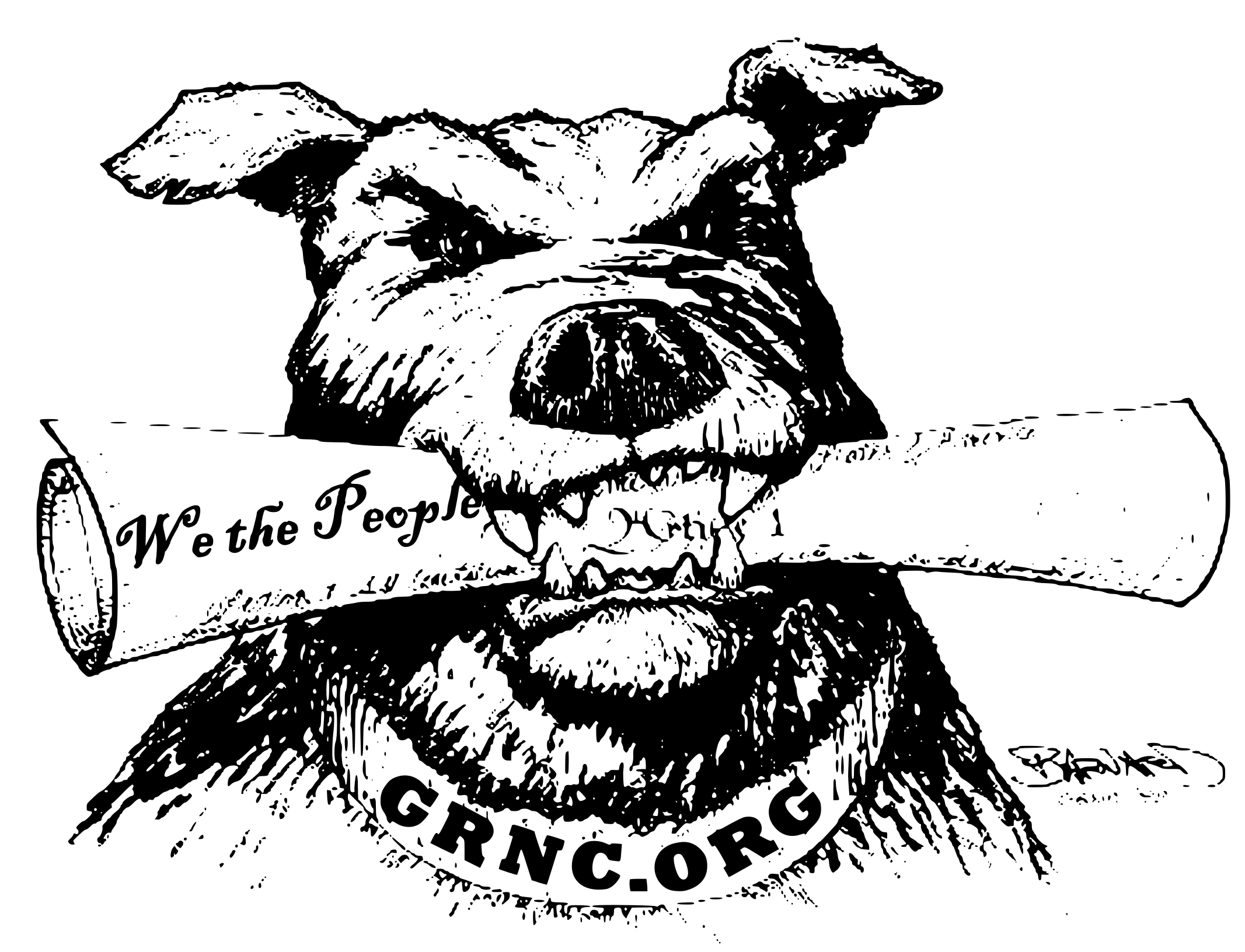Grass Roots North Carolina / Forum For Firearms Education
Post Office Box 10665, Raleigh, NC 27605
877.282.0939 (Phone) 919.573.0354 (Fax) www.GRNC.org
FOR IMMEDIATE RELEASE
Press Contact: 704.907.9206
E-mail: President@GRNC.org
Release date: February 11, 2016
Posting Asheville Parks against concealed carry breaks North Carolina law
- Changes to state gun law prohibit local governments from banning lawful concealed handguns in entire city and county parks
- City of Asheville stonewalls on its illegal ordinance
- Letter puts Asheville Mayor, City Council and City Attorney on notice that GRNC may pursue injunctive relief and recovery of damages
For a link to the release go to: http://www.grnc.org/defend-your-rights/press-releases
—————————————————————————————
February 10, 2016
The Honorable Esther E. Manheimer, Mayor
Post Office Box 7148
Asheville, NC 28802
Dear Mayor Manheimer:
Please be advised that the City of Asheville has posted its parks and recreational facilities against lawful carry of concealed handguns in violation of N.C.G.S. § 14–415.23.
On December 1, 2011, Section 21(b) of Session Law 2011-268 (formerly House Bill 650), became effective, amending N.C. Gen Stats. § 14-415.23 to restrict the areas in which units of local government may prohibit handguns carried in compliance with Article 54B of the North Carolina General Statutes. Specifically, local governments may no longer prohibit concealed handguns in parks, except in “recreational facilities that are specifically identified” by ordinance.
On October 1, 2013, Section 6 of Session Law 2013–369 (formerly H.B. 937) further narrowed the definition of “recreational facility” as follows:
(c) For purposes of this section, the term “recreational facilities” includes only the following:
(1) An athletic field, including any appurtenant facilities such as restrooms, during an organized athletic event if the field had been scheduled for use with the municipality or county office responsible for operation of the park or recreational area.
(2) A swimming pool, including any appurtenant facilities used for dressing, storage of personal items, or other uses relating to the swimming pool.
(3) A facility used for athletic events, including, but not limited to, a gymnasium.
(d) For the purposes of this section, the term “recreational facilities” does not include any greenway, designated biking or walking path, an area that is customarily used as a walkway or bike path although not specifically designated for such use, open areas or fields where athletic events may occur unless the area qualifies as an “athletic field” pursuant to subdivision (1) of subsection (c) of this section, and any other area that is not specifically described in subsection (c) of this section. (1995, c. 398, s. 1; 2011-268, s. 21(b); 2013-369, s. 6.)
Although Chapter 12 of the Asheville Code of Ordinances (Sects. 12–42 and 12–43) was modified in 2011, presumably to comply with the first change in statute, a number of problems remain, including (but not necessarily limited to) the following:
- Although Appendix G purports to list all of the recreational facilities in which firearms are banned, entire parks not listed in Appendix G are also posted. For example, please see the attached photo of French Broad River Park, which contains only a walking trail and specifically may not be posted against concealed carry under N.C.G.S. § 14–415.23.
- Regardless of whether a park contains a “recreational facility” as defined by North Carolina statutes, entire parks have been posted instead of just the recreational facilities within those parks. As an example, please see the attached photo from Carrier Park.
- Although required by North Carolina statutes, neither Asheville’s ordinance nor its signage limits prohibitions against concealed handguns at “athletic fields” to periods of time during which organized athletic events are scheduled.
Please understand that we have a large number of recent photographs of these illegal postings. I would also urge you to become familiar with another modification of North Carolina statutes which became effective on December 1, 2015 when N.C.G.S. § 14–415.23 was modified under Section 15 of Session Law 2015–195 (formerly H.B. 562) to include a new subsection (e), to wit:
“A person adversely affected by any ordinance, rule, or regulation promulgated or caused to beenforced by any unit of local government in violation of this section may bring an action for declaratoryand injunctive relief and for actual damages arising from the violation. The court shall award theprevailing party in an action brought under this subsection reasonable attorneys’ fees and court costs asauthorized by law.”
Accordingly, if the City of Asheville fails to revise its ordinance to comply with state law, our non-profit sister organization, Rights Watch International, will recruit plaintiffs from Asheville (where we have had a large number of volunteers) to pursue litigation against the City for declaratory and injunctive relief, and seek damages plus the recovery of attorney’s fees and court costs.
The only question is whether the City will amend its ordinances to conform to § 14-415.23, or whether a court will order it to do so after costly and distracting litigation. Please advise me, within ten (10) business days, of which course the City chooses.
Respectfully,

F. Paul Valone
President, Grass Roots North Carolina
Executive Director, Rights Watch International
Attachment
Cc: Asheville City Council
Robin Currin, City Attorney
